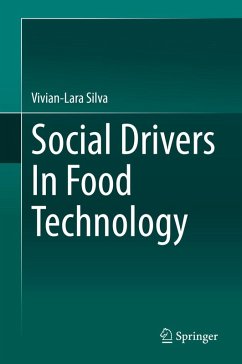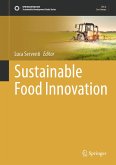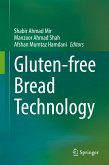Social Drivers In Food Technology presents a series of helpful case studies are presented covering six important food sectors: chocolate, coffee, yogurt, juice, baby food and snacks. These cases have been chosen inorder to illustrate dynamic and innovative advances in food processing technology. The information provided over the course of this book has been gained through the thorough study of both scientific literature and organizational reports from food processing companies. The major economic aspects related to food technology are also outlined throughout the text. This multidisciplinary approach is motivated by the opportunity to contextualize the technological debate in strategy and organizational economics, contributing to the formation of human resources.
This text is informed by the concept that one must look beyond the technology of the food processing sector and discuss opportunities that involve re-thinking product innovation and process, knowledge generation and human resource training. These innovations have been highlighted in food science & technology literature, but their economic and managerial implications have remained unexplored until now. With its informative case studies, helpful illustrations and quizzes and comprehensive, well-organized scope, Social Drivers In Food Technology is a much-needed textbook that will allow students to look at food processing technology from both industrial and economic perspectives and to consider the important human resource elements involved.
Dieser Download kann aus rechtlichen Gründen nur mit Rechnungsadresse in A, B, BG, CY, CZ, D, DK, EW, E, FIN, F, GR, HR, H, IRL, I, LT, L, LR, M, NL, PL, P, R, S, SLO, SK ausgeliefert werden.









